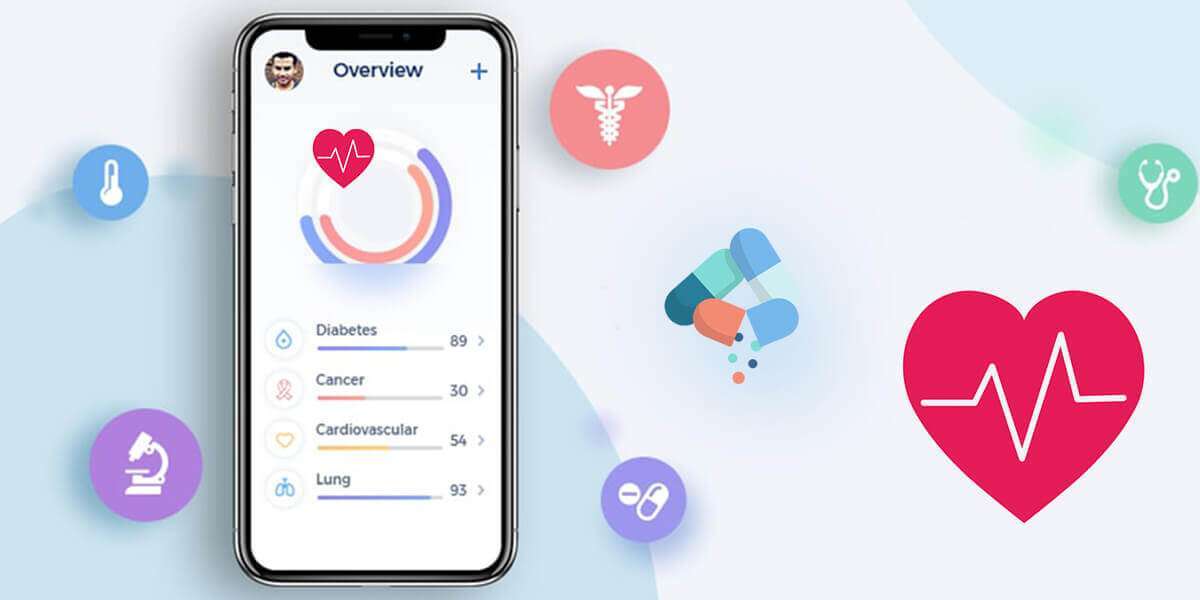
Visits: 3
Introduction:
In recent years, healthcare app development has experienced remarkable growth, revolutionizing the way we access and manage healthcare services. These applications have become essential tools for patients, healthcare providers, and medical professionals alike, offering convenience, efficiency, and improved patient outcomes. In this blog post, we will explore the top 10 healthcare app development trends that are shaping the industry and transforming the healthcare landscape.
-
Telemedicine and Remote Patient Monitoring:
- Telemedicine apps enable patients to connect with healthcare professionals remotely, facilitating virtual consultations and reducing the need for in-person visits.
- Remote patient monitoring apps allow healthcare providers to remotely monitor patients’ vital signs, symptoms, and health conditions, enhancing patient care and improving treatment outcomes.
-
Wearable Technology Integration:
- Healthcare apps are integrating with wearable devices like smartwatches and fitness trackers to collect real-time health data, such as heart rate, sleep patterns, and physical activity.
- This data can be used to provide personalized insights, monitor chronic conditions, and encourage healthy behaviors.
-
Artificial Intelligence and Machine Learning:
- AI and machine learning algorithms are being utilized in healthcare apps for various purposes, including medical diagnosis, personalized treatment plans, drug discovery, and predictive analytics.
- These technologies enhance the accuracy and efficiency of healthcare services, leading to faster and more accurate diagnoses and improved patient outcomes.
-
Electronic Health Records (EHR) Integration:
- Healthcare apps are integrating with electronic health record systems, allowing patients and healthcare providers to access medical records, lab results, and treatment history conveniently.
- This integration streamlines communication, reduces errors, and improves the continuity of care.
-
Health and Wellness Tracking:
- Healthcare apps are incorporating features for tracking health and wellness metrics, such as diet, exercise, sleep patterns, and mental well-being.
- Users can set goals, receive personalized recommendations, and track their progress towards a healthier lifestyle.
-
Medication Management:
- Medication management applications assist users in organizing and tracking their medications, as well as reminding them of dosage regimens, prescription renewals, and potential drug interactions.
- These apps improve medication adherence and reduce medication errors.
-
Virtual Reality (VR) and Augmented Reality (AR):
- Healthcare apps are leveraging VR and AR technologies for pain management, surgical training, mental health therapies, and patient education.
- These immersive technologies enhance patient engagement, improve training simulations, and facilitate innovative healthcare experiences.
-
Blockchain for Data Security:
- Blockchain technology is being adopted in healthcare apps to ensure secure storage, sharing, and management of sensitive patient data.
- Blockchain enhances data privacy, reduces fraud, and provides a decentralized and tamper-proof system for healthcare records.
-
Health Chatbots and Virtual Assistants:
- Chatbot and virtual assistant technologies are integrated into healthcare apps to provide personalized health information, answer queries, and assist with symptom checking and triage.
- These AI-powered assistants improve patient engagement, provide 24/7 support, and reduce the burden on healthcare staff.
-
Remote Health Monitoring and Emergency Services:
- Healthcare apps are enabling remote health monitoring for patients with chronic conditions or those recovering from surgeries or hospital stays.
- Emergency service integration allows users to quickly access emergency assistance and share critical health information with first responders.
Conclusion:
Healthcare app development continues to evolve rapidly, enhancing patient care, improving accessibility, and transforming the healthcare industry. The 10 trends covered in this blog article show the ground-breaking ways in which healthcare applications are redefining how healthcare services are provided. Healthcare applications are empowering patients, enhancing treatment outcomes, and enhancing the patient experience by utilizing telemedicine, wearable technology, AI, EHR integration, and other cutting-edge technologies.


%20(1).png)


